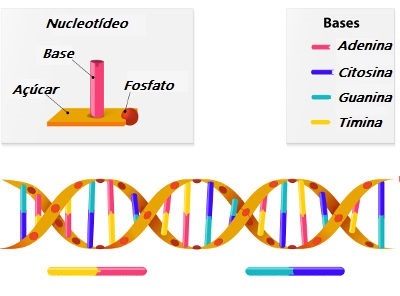Moms usually change several habits during the period of pregnancy and lactation, including the way to eat, paying more attention to the foods consumed to have a more peaceful pregnancy.
Recently, a study analyzed that the way parents eat should also be adequate, since this can affect the axis baby's intestine-brain, the system responsible for connecting the two organs and which can cause metabolism problems, including obesity.
see more
Secret of youth? Researchers reveal how to reverse…
The "powers" of porridge: check out the benefits of oats in…
Read more: Injections against obesity: See the risks of using without medical advice
The study was published in the journal Food Research International, funded by FAPESP through two projects, 19/09724-8 and 17/09646-1.
The research consisted of dosing and analyzing proteins and other factors related to maintaining balance between supplied and dissipated energy, metabolic diseases and inflammatory processes in male pups of rats. Thus, researchers came to the conclusion that changes can increase susceptibility to these diseases.
Research considerations
At the beginning of the research, males had a hypercaloric diet for ten weeks before mating, while females had this diet during the gestation and lactation period.
Then, the pups had their tissues and blood analyzed after lactation, at 21 days old, as well as at the beginning of their adult life, at 90 days old. The levels of some bacteria in the intestinal microbiota of rodents were also analyzed.
Professor Luciana Pellegrini Pisani, from the Department of Biosciences at the Federal University of São Paulo (Unifesp), Campus Baixada Santista, who was also the research supervisor, told the Status:
“In cases of a paternal diet rich in fats and sugars, we found important changes in the offspring right after lactation, such as, for example, an increase in serum concentration of lipopolysaccharides, which was positively associated with the activation of inflammatory pathways in the hypothalamus (brain region involved in controlling the appetite".
“We also had a decrease in Z01, which is associated with increased intestinal permeability, leading to greater lipopolysaccharide translocation [LPS leakage out of the intestine].”, she added.
Thus, as a conclusion on the impact of paternal feeding, Pisani highlights: “Do these findings mean that, at birth, the offspring is already doomed to suffer metabolic problems? No, although there is a greater propensity, it is possible to reduce these deleterious effects with reprogramming through a change in the lifestyle, i.e. practice of physical activity, adequate food intake, balanced and without severe restrictions or increases drastic”.
“The study opens up the possibility that, from the moment there is a planning for pregnancy, there will also be a change in both the mother-to-be and father-to-be lifestyle – which will make a big difference in the lives of the children for generations”, concluded the teacher.
The full study (in English) can be seen here.
Lover of movies and series and everything that involves cinema. An active curious on the networks, always connected to information about the web.

